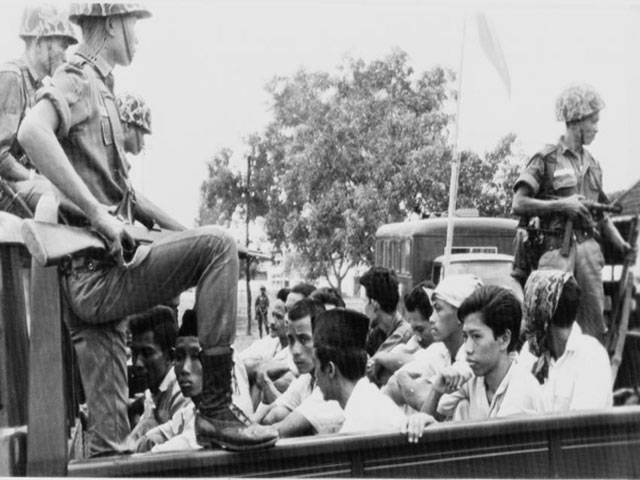“I came across the Indonesian genocide in 2001, when I found myself making a film in a community of survivors. They were plantation workers, and it turned out they were struggling to organize a union.”
–Joshua Oppenheimer
Suspected leftists rounded up by Indonesia’s
military in 1965.
While the united and free world succeeded on several occasions in protecting future generations from the scourge of war, it almost always fails whenever a state undertakes the initiative of killing its people. Sometimes the world fails to reach a consensus, many times the national interests bar the global powers to act promptly in curbing a genocide or mass slaughter. The Indonesian mass killings of 1965-66 were one such tragedy. It is one of the least discussed tragedies post World War II as the quote stated above also implies.
The slaughter in 1965 served the purpose of wiping out the largest communist political party outside USSR. Multiple accounts estimate that General Suharto’s regime killed up to a million people who were either member of the PKI or were party’s sympathisers. The lesser-known fact about the perpetuation of Suharto’s brutal regime was support of the United States and Great Britain to the dictator.
The generation of sixty is still alive, and filmmaker Jousha Oppenheimer has documented their thoughts, traumas and experiences in two critically acclaimed documentaries in a film series: The Act of Killing and The Look of Silence. People recalling the tumultuous years and the horrors of Suharto’s regime are an affirmation of Viet Than Nguyen’s words: “All wars are fought twice, the first time on the battlefield, the second time in memory.” In 2017, the American State Department released some declassified documents revealing that on many instances the American officials applauded the forces behind the killings.






